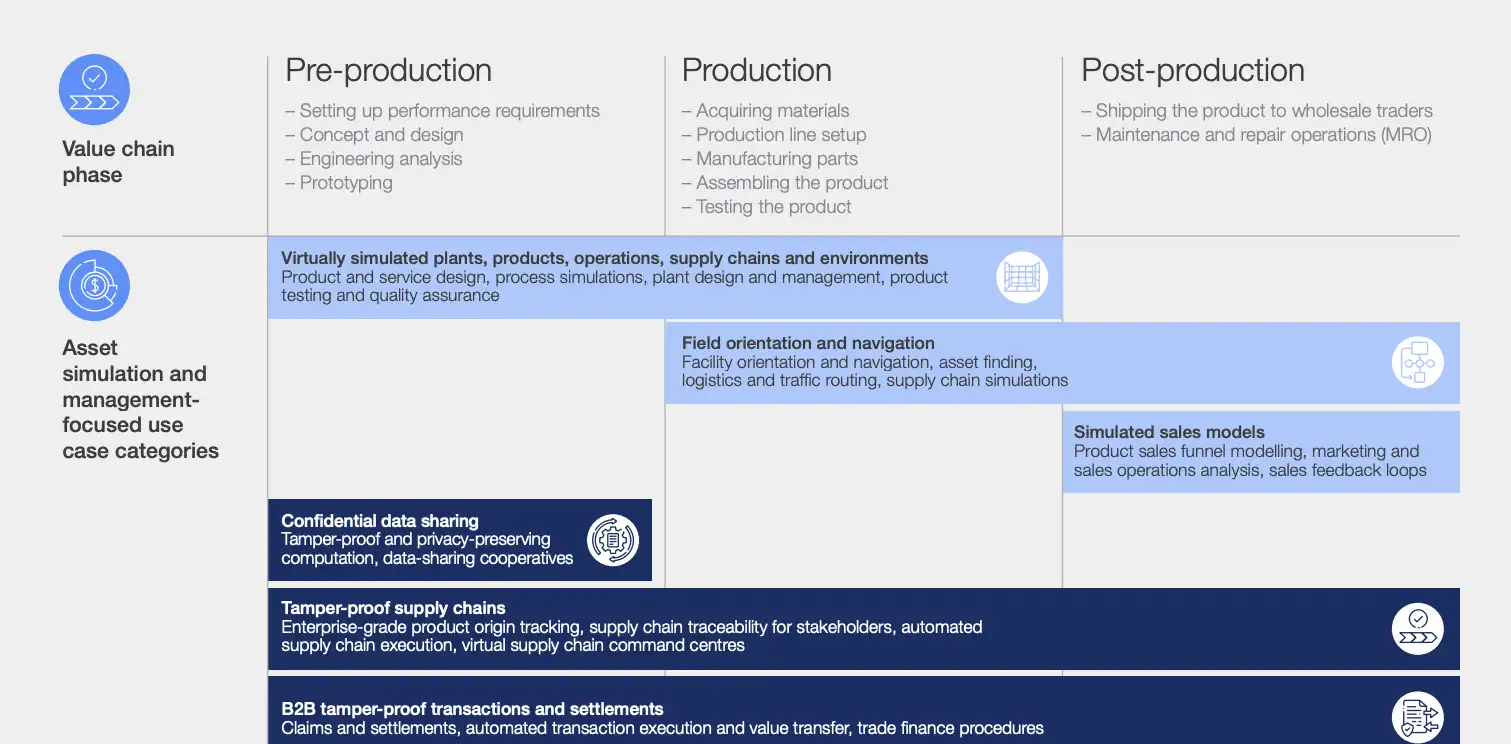92% of U.S. manufacturing executives are exploring integration of the metaverse into their operations. Companies leveraging digital twin technology and cloud services for predictive forecasting and efficiency enhancement.
An increasing number of manufacturing companies in the United States are shifting their attention to the industrial metaverse to address intricate challenges throughout the production cycle, as outlined by the World Economic Forum (WEF).
According to a recent report published by the WEF on March 12, 92% of U.S. manufacturing executives are actively exploring diverse methods of integrating the metaverse into their respective enterprises.
Survey findings collected from 100 of the largest companies spanning across 10 industries indicate that, on average, each executive is investigating up to six different utilization cases.
The WEF underscores that one significant driver behind this surge in interest is the imperative for the industrial sector to "raise its aspirations" in response to the repercussions of the COVID-19 pandemic.
“Amid recovery from the COVID-19 pandemic, a series of technological, macroeconomic, societal, and business-to-business (B2B) customer trends are accelerating and converging to create new challenges and opportunities for growth in the industrial sector.”
This necessitates manufacturing firms to devise strategies to expedite production cycles while simultaneously enhancing efficiency and cost-effectiveness through predictive forecasting.
The report highlights the varied applications of digital twin technology, which involves employing virtual models to represent physical entities. Notably, Amazon has deployed the cloud services platform Nvidia Omniverse to conduct simulations aimed at enhancing warehouse design and robot workstations.
Similarly, Mercedes Benz is leveraging the same platform for designing manufacturing assembly facilities.
Furthermore, on March 1, Cointelegraph reported that Telecoms infrastructure firm Nokia has been utilizing the metaverse in Australia to potentially aid Cessna aircraft technicians at remote airports.

The report also underscores the applicability of the industrial metaverse across the product lifecycle, encompassing pre-production, production, and post-production stages.
Tasks such as product and service design, process simulations, plant design and management, as well as product testing and quality assurance are particularly emphasized.
“While real-life applications of the consumer metaverse are still evolving, the industrial metaverse is leading the adoption curve, closely aligned with actual challenges and business imperatives, driven by practical implementation.”
The report emphasizes that the information technology and vehicle manufacturing industries are spearheading developments in the industrial metaverse sector.
“Automotive, energy, software and platforms, and aerospace and defense currently lead the way in industrial metaverse investment and activity,” the report confirms.
However, despite the efficiency enhancements observed in certain sectors, reservations persist regarding the potential negative repercussions of the metaverse, particularly on other industries such as the creative arts sector.
On March 8, Cointelegraph reported that researchers from the United Kingdom have concluded the necessity of formulating approaches to address enforcement and governance of intellectual property (IP) matters in the metaverse.
“Blockchain’s intrinsic resistance to alteration or correction undermines the ability to flexibly manage or update IP rights,” the researchers emphasized.

